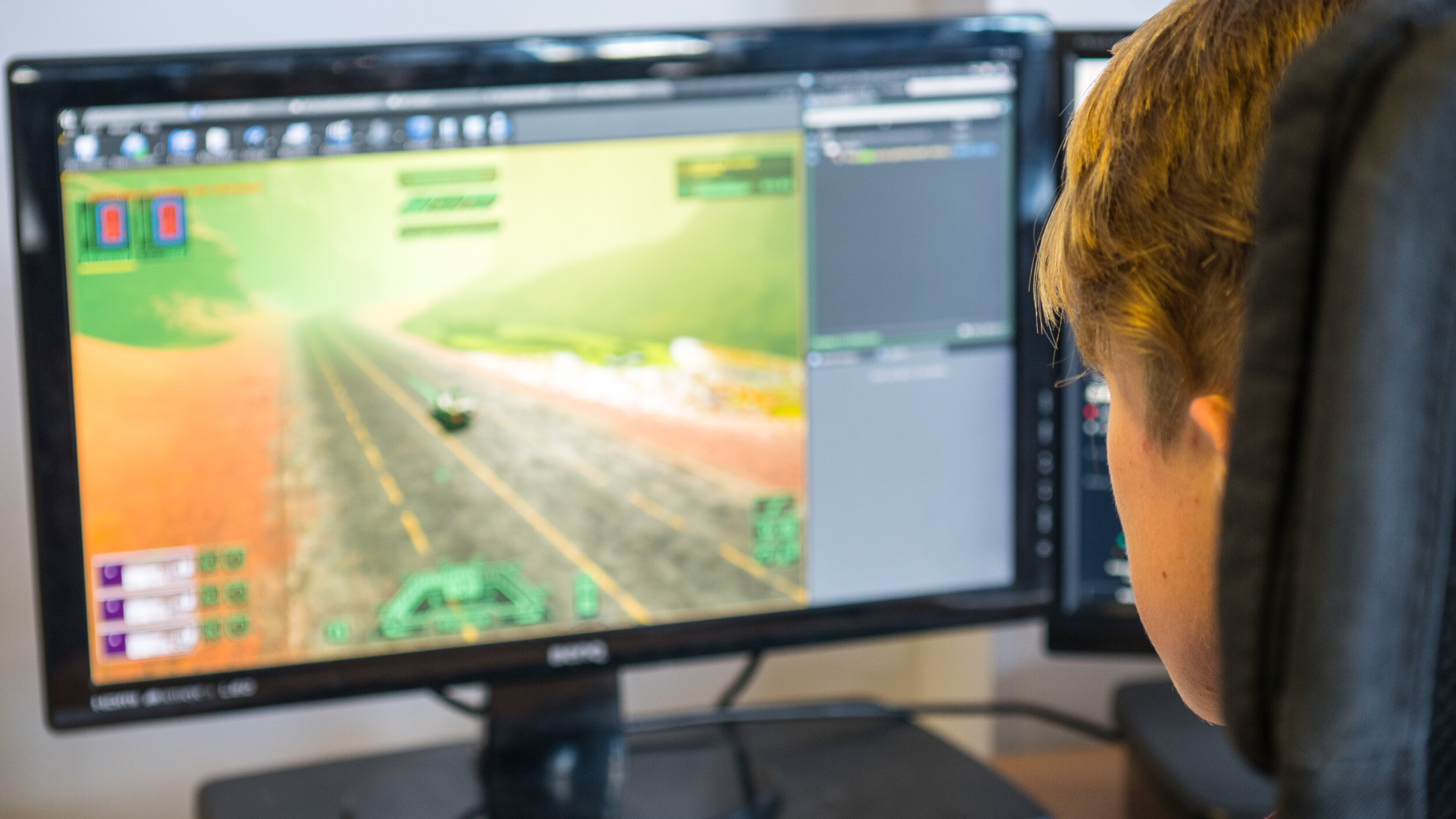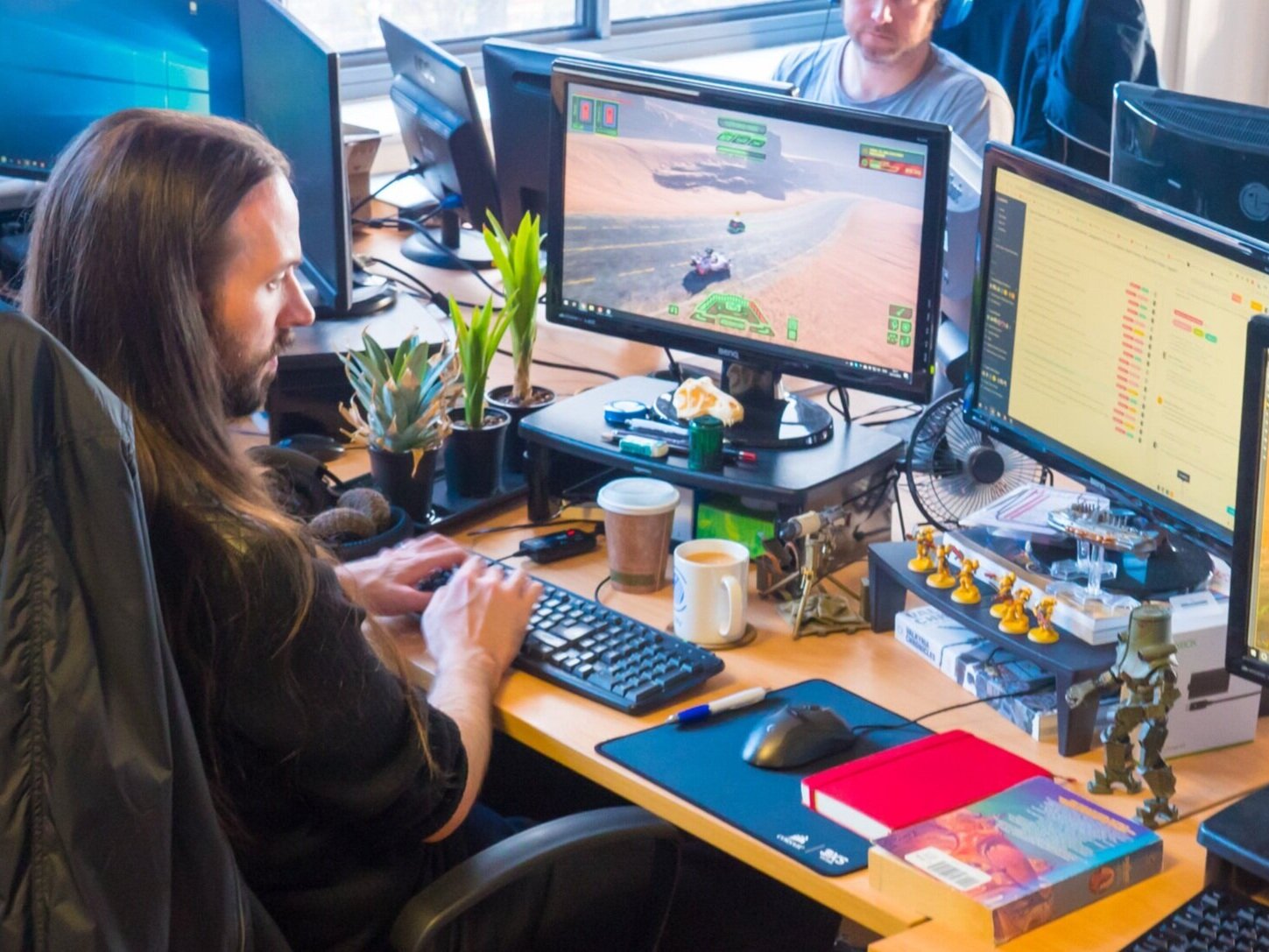Video game crunch: What is it and is it a problem?
/Phrases that get thrown around a lot in discussions about the video games industry are “crunch culture”, “crunch time”, and “crunch crisis”.
But what is crunch in video games? In this brief blog post we’re going to gather up a lot of the thinking about it, and give our perspective.
As a word of caution, as with any piece that features opinion, this is going to be heavily biased by our experience, our thoughts as a group of people, the past successes and failures of the studio, the way certain laws work in our country, and so on. For example, we’re based in the UK, so we don’t rely on employment in order to continue receiving health insurance to cover private medical bills, a factor that might heavily influence a person’s motivations for accepting crunch in, say, the United States. Ultimately crunch is a thing that affects human beings, so by its nature much of what will be discussed is subjective and we’re not here to judge people for their feelings toward the topic - we’re just presenting some of the threads of thought on the matter and then stating our opinion.
How is video game crunch defined?
We’ve looked through dozens of articles on the subject and spoken with plenty of colleagues, and no one seems to fully agree upon a standard definition of “crunch” - it means different things to different people. For some it’s “working long hours”, others it’s “working long hours repeatedly”. For some it’s “forced overtime” and others include any overtime, even if it’s theoretically “optional”.
Our aim here isn’t to come up with a cast iron definition, instead it’s enough for the scope of this short piece to set out a variety of viewpoints so you can see for yourself that the common thread that runs through all of them is “working more hours than planned”. We’ll keep using the word “crunch” here, just bear in mind that it has multiple meanings, depending on who you ask.
Where does video game crunch happen?
A really big misconception is that crunch can only happen at very large video game studios - that it’s the big bad giants of the industry with the multi-million selling franchises doing all the crunch. And that’s just not true.
It can be smaller teams too: the indie studio with limited resources but big ideas, the passionate university students running out of time to submit their end-of-year project, the solo developer working 100 hours a week to finish their experimental masterpiece.
Big or small or somewhere inbetween; crunch can happen.
Is crunch a good or a bad thing?
While there’s generally a consensus that crunch can be negative, which we’ll get to in a moment, there’s disagreement over whether or not crunch can have some positive effects as well (and additionally, if those positive effects are ultimately worth it).
The core benefits of crunch usually boil down to the following;
If people at a studio work more hours then, quite simply, there are more hours to spend on trying to make a game better, and a better game is preferable to a less good game. People really care about the things they make, and some may want to put extra time into a project to get it working exactly the way they want it.
Some individuals on teams report crunch being a good bonding exercise. There’s a “being in the trenches” mentality that promotes cohesion and lasting friendship between team mates.
Crunch can be paid work, or additional annual leave can be provided as part of working overtime, benefits that employees may see as being desirable (and, therefore, a net positive).
However, it’s also possible to provide counterpoints to the potential positive effects of crunch mentioned above;
Working longer hours demonstrably leads to work of a lower quality being produced - if you’re tired, you make mistakes, and that applies to writing code, doing art, making design choices, doing rigorous testing, and every other element of making games.
There are arguably more pleasant ways to enhance the cohesion of a team than working long into the night. Besides this, being away from friends and family can cause stresses and strains at home that leak into the workplace and, in turn, damage relationships at the studio.
Paid overtime and extra holiday is all well and good, but for some disciplines and career levels that extra money doesn’t make a lot of difference - a lead at a AAA studio is fairly well-paid already. But for others the additional money is almost a necessity: a junior tester in London or San Francisco may regularly struggle to make ends meet, ergo overtime becomes less “optional extra cash” and more “part of a wider problem that isn’t being addressed”. And sure, extra holiday is fine, but if you’re using crunch to meet deadlines, are you really going to have the opportunity to use that annual leave?
There are many more problems created or exacerbated by crunch beyond the obvious one we’ve actually yet to mention, i.e. decreased quality of life through spending more time at work and less time outside of work.
And these additional problems include damage to mental and physical health, demotivation for projects, dissatisfaction with place of employment and, for companies, losing skilled employees through them seeking employment at other studios or even other fields outside of games.
Is crunch optional?
Some studios state that crunch is purely optional for them. Let’s assume that the management at the company that states this is actually being genuine - they really do only want the people who want to crunch, to crunch, and would be absolutely fine with employees choosing not to, with no repercussions.
The first issue is that, realistically, employees can never truly know that statement to be true, often assuming that it’s being said as a wink-and-nod agreement that, actually, no, the company really does expect you to work late. If you’re a junior, new to the company, or are a contractor, there’s not a lot of incentive to assume crunch is optional and, in doing so, jeopardise your job.
Another is that company-wide crunch can often be an informal cultural issue, rather than a formal work policy. Statements from management about crunch being optional is often paired with claims about those who do crunch “working harder” than those that don’t. The logical implication here being, of course, that those that don’t crunch aren’t working as hard as their colleagues who do. Are those people letting the team down? Will those that don’t crunch be passed by for promotion as they don’t demonstrate the ability to “work hard”?
In some company cultures with crunch, team members - often leads - will regularly be the first ones in and the last ones out, racking up a lot more hours than juniors. Sometimes they’ll do “heroic” amounts of crunch to get something done. In the process they’re subconsciously telling their colleagues that if they want to make a good impression and achieve a lead role, that they had best start working more hours.
In these examples, though crunch may be theoretically optional on paper at companies that accept it as part of their business, in reality there is a very strong set of motivating factors for a person to engage with crunch.
What causes crunch?
There are a lot of factors, but the common throughline is, at a basic level, a lack of time.
A variety of factors go to cause this lack of time, with the following being some of the more common;
A new feature request being made, or a pivot in the direction of the product, without budget being appropriately provided.
Poor estimation of the amount of work required to make a product, i.e. overpromising and underestimating.
Signing a project that is known to be undoable without crunch, as the budget allocated to do the work is not enough, but is signed anyway due to financial necessity at the company.
A significantly large unexpected issue, with no budget allocated ahead of time to deal with such events.
Inadequate production methods at the studio, leading to mistakes being made, work being created inefficiently, and so on
Where does Auroch Digital stand on crunch culture?
We’re not fans of crunch.
That said, we’ll admit that at the studio in the past we’ve done small amounts of crunch in a focused manner in order to hit a very important deadline. It’s been extremely rare, and always a last resort, but it’s not something we’re particularly proud of, or keen on repeating.
And it was crunch that could have been avoided. So as a team we’re committed to continually improving the ways we work to ensure the chances of it happening again are dramatically reduced, and we’ll continue striving to make our studio and culture the best it can be.



